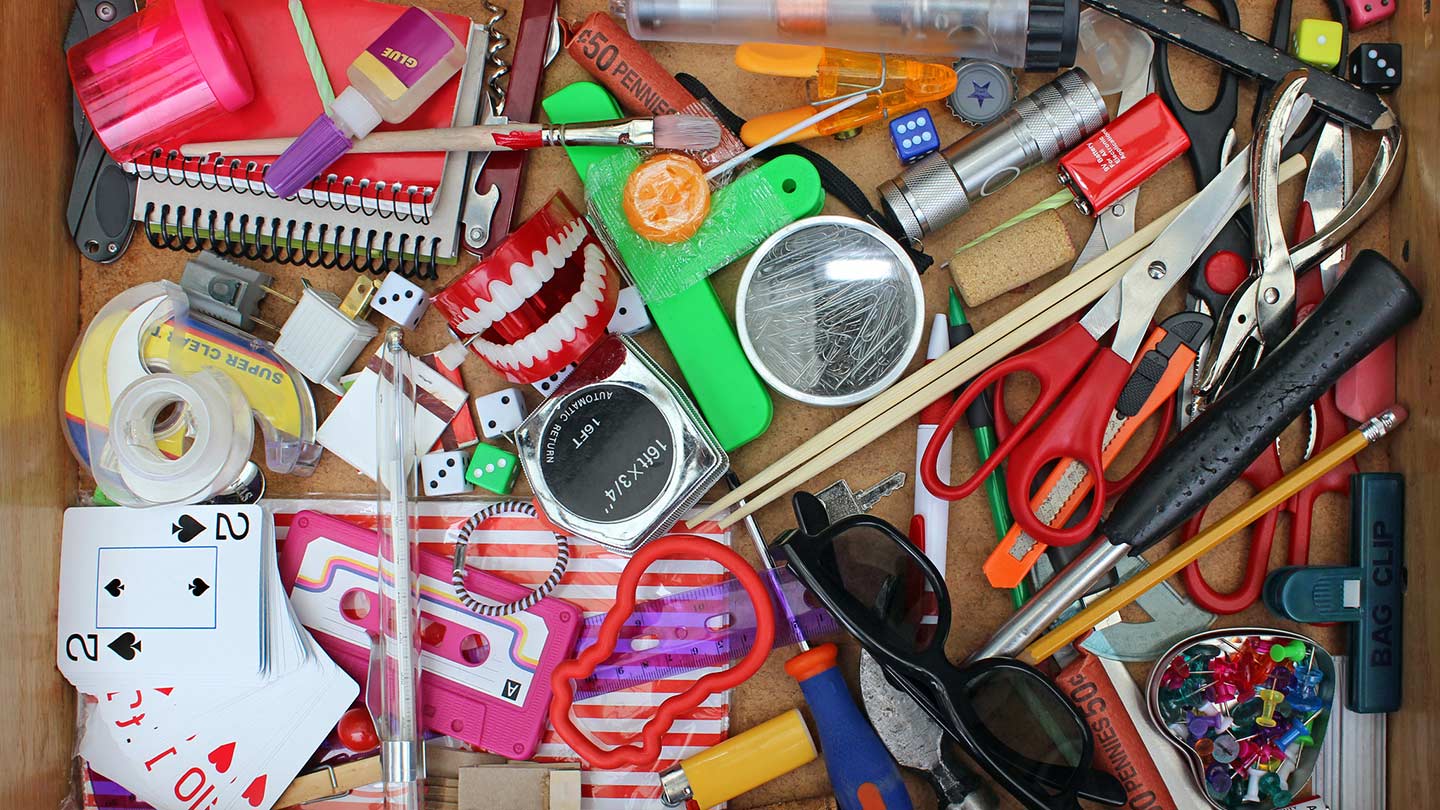I don’t know about you, but with the holidays among us, there seems to be more “stuff” accumulating in our house. Perhaps you too may feel overwhelmed with all the clutter. Dr. Rick Fowler, Professor of Psychology for the Leonhard Schiemer School of Psychology and Biblical Counseling, provides ten helpful tips for those who may struggle with a hoarding tendencies or want to work on de-cluttering their household.
A packrat is one who tends to develop an emotional bonding to the things they own. This love affair with their possessions then keeps the individual from discarding anything. Pack ratting is actually an addiction, because negative behavior is repeated without a mental affirmation as to the positive benefits of that behavior.
Helpful tips for the hoarder:
- Many packrats equate their possessions with everything that is good in life. Emptying your shelves directly into the dumpster is bound to lead to regret, so set concrete boundaries for yourself that will allow you to de-clutter while still honoring your attachments to a limited extent. For example, instead of keeping an entire box of old college essays, choose one or two you are most proud of and throw out the rest. The key is MODERATION!
- Take everything out of a room. Have three containers: one for throw away, one to donate, and one to keep. Handle an object only once.
- Limit the time in seconds to make a decision.
- You may wish you had kept 20% of the items you discarded, but this is not something to worry over!
- Learn to shut off your emotions during this process.
- With clothes – have less than ten outfits in your closet.
- Keep a memory, discard the item. Take a photo of the item and then journal about it later.
- Once the original clutter is gone, choose to take care of today’s business of discarding what is not used immediately. Have 30 minutes set aside each day to mentally focus on your need for simplicity.
- Realize hoarding is an addiction, and that you are powerless over this addiction unless you get help.
- Lastly, if you know that your emotional attachment to your stuff is likely to get the best of you, invite an impartial friend to clean-out day to help you make tough calls.
There are several benefits to “cleaning out the clutter.” First of all, your mental health will drastically improve. There will also be a new sense of power and personal control over your life. Finally, your decision-making ability will carry over to other areas of your life.
###
Dr. Rick Fowler is a Professor of Psychology for Truett McConnell University.
Return to Blog Archive
